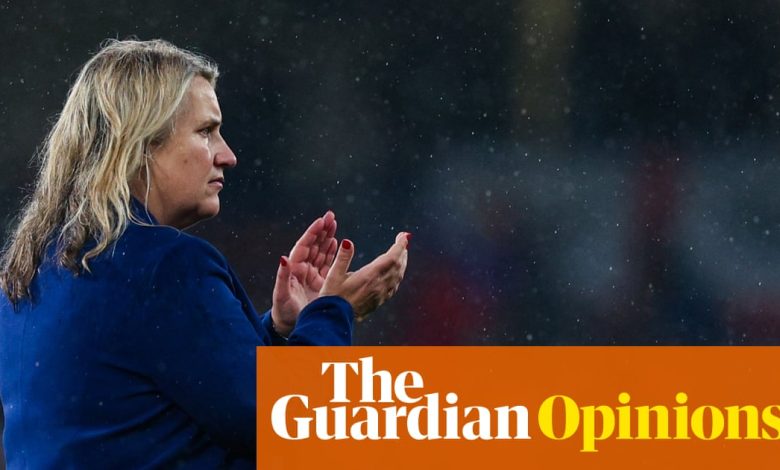The Guardian view on footballing greats: their words reach beyond beautiful game | Editorial

[ad_1]
The departure this weekend of two of England’s most influential and successful football managers will be felt beyond the sport. There is no doubt that the loss of Emma Hayes from Chelsea from the Women’s Super League and Liverpool Jurgen Klopp from the Premier League offers important lessons for the game about why leadership matters. Their personalities and tactical acumen demonstrated why managers can help clubs do better than their players’ skills alone suggest.
Both managers gave football a human face. Hayes was appointed by Chelsea in August 2012. Her team won 15 trophies, an average of more than one per year. She can sign off with 16th place on Saturday, with the title battle between them this season Chelsea and Manchester City going to the final match. She became synonymous with the English game at home and abroad and showed her keen analytical sense of the game as a television pundit.
In 2021, she rightfully so described as an “insult” to women’s football the idea that a move to a male role in League One would be considered a step forward. The message was that women’s football is equal, albeit different. Her warning that parenting the demands on women coaches have caused some to leave the job they love, they need to be heard – not just by clubs but by partners too. Hayes’ move to lead the U.S. women’s team isn’t just about getting on the world stage, but also about seeking a better work-life balance after a tragic personal loss. She is the greatest, but she is also human.
Klopp also went beyond sports. His almost decade-long rivalry with Pep Guardiola’s Manchester City produced some of the best football and some of the best matches seen in the English Premier League. Klopp won eight trophies. His final game in charge against Wolves on Sunday will be long remembered. His reason for leaving was that he was done energy – showed him that he was human and that he cared about being human.
Klopp’s triumph epitomizes his football club’s hometown. He had irreverent, unstoppable a pro-European, temperamental character who played up the opinion of many local fans about himself. Even supporters of the opposition sometimes admit they wish they had managers who sounded like Klopp.
He spoke out against Liverpool’s attempt to create a separate Super League, echoing fans’ concerns about ticket prices and took a hard line against unvaccinated footballers during the pandemic. In his last press conference before the game, he came out against it video assistant referee. Our sports journalist Jonathan Liew put it best when he wrote that Klopp has come to “represent a kind of resistance: the return of the human being back into the machine, the idea that overwhelming wealth and autocratic power can be overcome through the ingenuity of the collective spirit.”
Modern football coaches are often seen as spokespeople for their clubs. This makes it easy to overestimate their importance. But Hayes and Klopp stand out for their impact on both the game they loved and the wider society they shaped for the better.
[ad_2]




